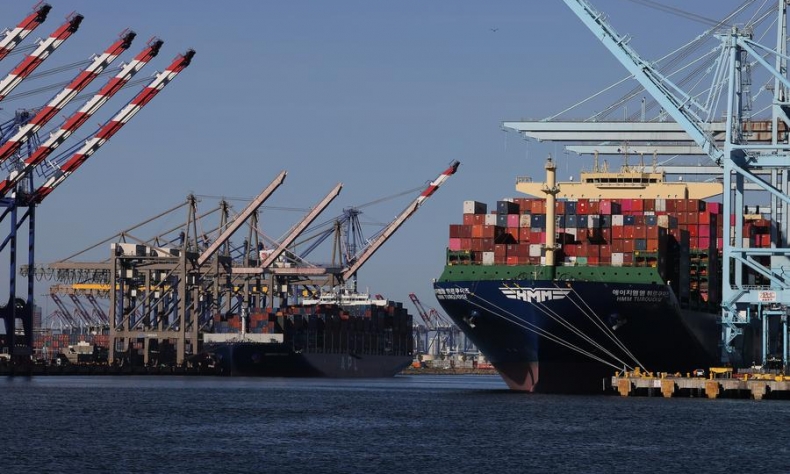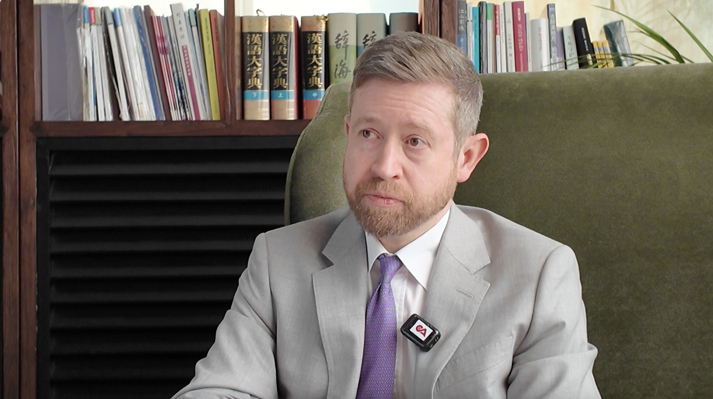Navigating Uncertainty

For around 40 years, the U.S. tried to maintain a global system that the U.S. would be at the top of. The Trump administration is putting an end to that.
The global economy has been in turmoil since the Donald Trump administration kicked off its trade war with the rest of the world several months ago. The seriousness of the impacts brought about by Trump’s “reciprocal tariffs,” and the impacts of the uncertainty they have created, necessitate an examination of the administration’s motivations and goals for imposing them. So what is behind the so-called “reciprocal tariffs” and Trump’s unpredictable diplomatic moves?
To find out, Beijing Review reporter Li Wenhan talked to Jake Werner, Director of the East Asia Program at the Quincy Institute for Responsible Statecraft, a U.S. think tank specializing in U.S. foreign policy. Werner studies how China-U.S. relations have become so strained—and what it would take to put them back on a more positive track. Edited excerpt of their conversation follow:
Beijing Review: What are the prospects for China-U.S. relations under the second Donald Trump administration?
Jake Werner: I think there actually is an opening for some kind of agreement between the U.S. and China under the Trump administration. China wants to improve the relationship. It wants to stabilize the economic relationship. Trump wants to be able to make a deal he wants, too.
But it is hard to make an agreement for both sides, because the agreement always involves some kind of concessions. And that makes you vulnerable to attacks from your own side.
It would be helpful for the Chinese side to understand that the U.S. is in the midst of a deep political turmoil right now. The Trump administration is challenging a lot of the existing status quo institutions in the universities, business community, courts and military. It has a very challenging reform agenda. And it wants to change the face of the U.S. So this is primarily about what America is going to look like, rather than about U.S. relations with China or U.S. relations with Mexico.

It (the current turmoil) came from a set of tensions within U.S. society that are getting worked out politically now. I think it certainly does represent a break with the nature of U.S. foreign policy since the 1980s. So for around 40 years, the U.S. tried to maintain a global system that the U.S. would be at the top of. And it would regulate the economy and political relations and pursue a basic reform of the entire world in the direction of greater liberal democracy, greater free market economics. The Trump administration is putting an end to that.
Some of the way that Trump is conducting himself, it just looks like he wants to be able to use the power of the U.S. to gain concessions from weaker countries. If that’s ultimately the system that they are aiming for, it would be a more bilateral diplomacy, more about power than it would be about trying to integrate people into a set of institutions.
What strategies should China and the U.S. adopt to develop collaborative relationship?
China certainly has the capacity to take over some of the things that the U.S. is now renouncing. But Chinese foreign policy generally is very cautious and avoids trying to get drawn into conflicts.
And I think that is okay. I don’t think it would be healthy for the world that a single country tries to take the role that the U.S. has played over the last several decades. I would rather see broad negotiations among all of the major countries to work out a framework that everyone can contribute to. There is a principle of common but differentiated responsibilities. That is part of the climate change negotiations, that not every country has the same responsibility for the problem, and not every country has the same capacity to contribute to solving the problem, but every country has an interest in addressing it, and every country has a responsibility to be involved in that process.
That means that different countries will contribute in different ways, but everyone is part of the process. I would like to see that principle opened up to other global problems, for example, the issue of public health, the issue of development investment. These are things that I think China could contribute to substantially.
That is a much more promising direction, something that China could do and something that would be more successful if it were done in that way.
 Facebook
Facebook
 Twitter
Twitter
 Linkedin
Linkedin
 Google +
Google +










